Where are the best cities for technology jobs now?
It used to be that if you wanted to be a successful technology architect or software developer, you needed to head to Northern California.
Now, times have changed.
The tech industry has evolved and location doesn’t play anywhere near the role it used to. A whole new generation of tech workers has created new technology hubs across the U.S.A..
Technology workers might be ready to relocate to a new city for the right job but maybe they can work remote instead. Research shows that nearly 80 percent of technology professionals have or would consider relocating for the right technology job. Usually what they are lookin for is a combination of professional opportunity, affordability and quality of life.
Here is our list of the Top Cities for Technology Jobs
Top Cities for Tech Jobs
Austin, Texas
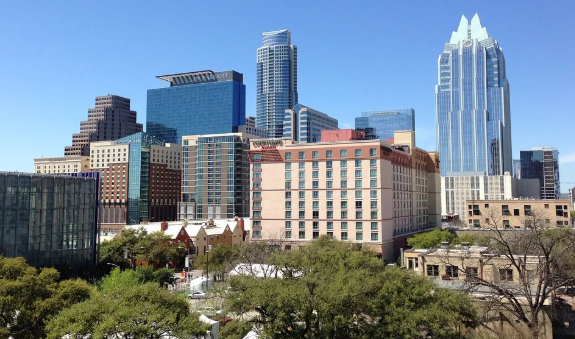
Texas has a great business climate and it’s attracting business to Austin. Twitter got its start here, and it hosts the annual SXSW conference. The Austin-Round Rock area also created almost 50,000 jobs. While Dell, in Round Rock, was the largest source, other high-tech giants include Samsung, Google, IBM and Apple, which recently announced it would invest $1 billion to build a new campus in the area. According to the Austin Chamber of Commerce, 46 technology firms such as Zoho relocated here, and startups such as RigUp and DISCO recently raised almost a half a billion in venture capital funding. UT-Austin and other local universities provide a pool of local talent.
Workers who relocate from Silicon Valley find their dollars go further here. While the growth rate in bedroom communities like Pflugerville has become almost exponential, the overall cost of living is still about 3.5% lower than in the U.S. as a whole. In addition, the Austin suburbs boast great schools and activities. Family friendly entertainment includes festivals, parades, outdoor theater and musical performances offered by the local parks departments, libraries and clubs. For example, Georgetown has a Red Poppy Festival and a Bach Festival, Round Rock has an annual Chalk Walk and Diwali celebration and Pflugerville offers an enormous new skateboard park and water park.
For singles, “keep Austin weird” hints at the progressive local culture which includes a thriving music scene. The plethora of local bands and the craft brewhouses, clubs, local theaters and various gaming taverns provide a myriad of entertainment options. The natural springs at Zilker Park and boating on Lake Travis help to beat the heat while bike trails run through the city.
Raleigh-Durham-Chapel Hill, North Carolina

The Research Triangle features numerous corporations that specialize in technology and bio-tech. Raleigh is one of the top cities in the nation when it comes to attracting those with a professional resume in STEM fields. Currently, 5.7% of its workforce is composed of those with careers in this area. They find it an appealing location for a variety of reasons.
First of all, salaries go far in the area. The median salary of $92,000 was $3,580 less than the national median, but this was balanced by an overall cost of living that was 4.6% lower, so the cost of living index was 91.6. Additionally, the unemployment rate was only 2.6%. Tech workers can pursue careers in diverse areas including electronics and bio-tech. There are several research-oriented universities in the area that hire tech-professionals.
Then there is the quality of life. While a married couple with both partners working in the tech field might barely manage a cottage in Silicon Valley or in cities such as Seattle or New York, in the Research Triangle they can afford 4-bedroom houses with generously sized yards in upscale communities with access to good schools and many amenities. These include museums, theater and the arts as well as a variety of shopping and dining options. Plus, both the mountains and the beach are within driving distance for day trips.
Future job growth in the Raleigh area is assured with startups like Epic Games and Prometheus Group making their homes here, as well as tech firms like Pendo. These types of innovative firms are driving an IT job growth rate estimated to be 9% over the next 5 years.
San Jose, California
(San Jose-Sunnyvale-Santa Clara, CA)
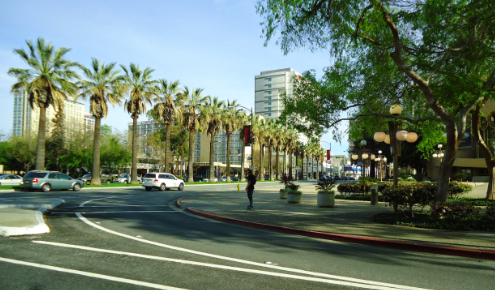
When you think of high-technology, probably the first place that comes to mind is Silicon Valley. This is the home of such giants as Apple, Google, Cisco, Adobe and more. While salaries here are substantially higher than elsewhere, the cost of living is also very high.
Nevertheless, despite the affordability issues, many high-tech workers find the trade-offs worth it. They have options and job security – 140,000 IT jobs were posted in the area.
Those who live in the area enjoy 300 days of sunshine a year and the opportunity to spend those pleasant days hiking and camping in Yosemite National Park, which is close enough for a day trip, or to go boating and swimming up at Lake Tahoe or to go spend a pleasant day wandering through San Francisco’s Chinatown or enjoying the sights at Fisherman’s Wharf. There are many beaches and oceanfront communities up and down the coast as well as some of the most scenic drives.
For serious foodies, there are both renowned five-star dining experiences as well as neighborhood restaurants featuring some of the most authentic flavors from all over the world, as this area has long been an immigration hub. If having access to a variety of Vietnamese, Thai, Central/South American and fusion cuisines is not enough, Napa Valley is a favored destination for those who enjoy wine.
Finally, California is home to some of the best universities in the world, and Northern Californians have access to such distinguished institutions as Berkeley, Cal-Tech and Stanford.
Seattle, Washington
(Seattle-Tacoma-Bellevue, WA)
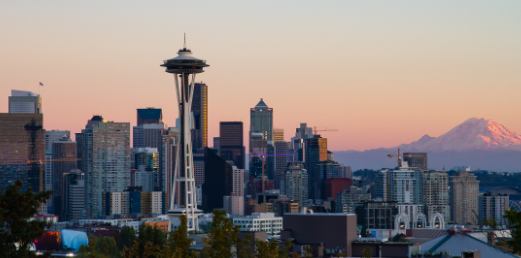
When you think of high-tech, one of the first names that comes to mind is Microsoft, so it’s no wonder that the Seattle area is a hub for software development. Based in Redmond, Microsoft is still one of the key employers in the Puget Sound region, but it has been surpassed by Amazon as a source of employment. Other companies in the area include Oracle, Facebook and Boeing, which was founded in Seattle. Seattle salaries are comparable to Silicon Valley, with median salaries of $115,826. While the cost of living is still about 21% higher than the national average, houses in the area are a third less expensive than those in San Jose, which makes Seattle a desirable destination for the Silicon Valley software developer seeking greener pastures.
In fact, Seattle is quite green – all that rain produces lush vistas. Locals are proud of the scenic beauty as well as the indie music scene, the local craft brews and, of course, the coffee. While Starbucks has its headquarters here, natives often prefer smaller cafes that often feature local artists. In addition to the nightlife and the coffee culture, Seattle is home to a variety of museums that cater to a techies. These include the Living Computer Museum, the Museum of Flight, the Pacific Science Center and the Museum of History and Industry.
Another attraction for technology professionals is the vibrancy of the job market. Jobs in high-tech fields grew by 43% from 2001 to 2011 and companies sought 81,000 workers with a professional resume in high-tech fields. This all contributes to making the Seattle area highly desirable for technology workers.
Charlotte, North Carolina
(Charlotte-Concord-Gastonia, NC)

Located in the green hills of North Carolina, Charlotte is a smaller city that still packs a powerful punch when it comes to offering opportunities for those in tech. While it has not grown as much as other cities on this list, it’s still done quite well and is projected to continue steady, if slower job growth in the coming years.
Many of jobs will be in the financial sector as Charlotte is known as a banking hub for the nation. This provides many openings in areas such as software, project management and engineering, and also for data analysts and those in quality assurance. The metro area posted a total of 52,357 new technology job postings and IT jobs are growing at a fast clip. The median salary in the area was $91,617 which is above the national average while the cost of living is 2.5% lower than the national average. This makes it a good place for technology professionals who are thinking of raising a family, as they will be able to afford larger suburban houses in safe communities with good schools.
Add to this a temperate climate, diverse amenities and robust infrastructure and you can see why Charlotte makes an attractive option for many tech professionals.
Dallas, Texas
(Dallas-Fort Worth-Arlington, TX)
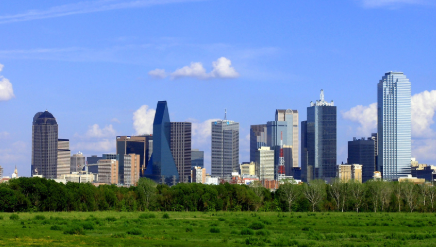
Another Texas city that makes our top ten, Dallas is known for its corporate giants. American Airlines and Bank of America, for example, are headquartered here. However, recently it’s become a hub of startup activity as well. According to Forbes, several factors contribute to this change. Among them are the growing number of VC funded startups, the expanding rate of job creation and the relatively low costs of housing as compared to other high-tech hubs. Dallas had an amazing 134,000 openings for technology professionals. IT jobs are set to explode in the area, and median salaries for tech workers was $93,000. The most sought after professionals are software engineers and Java developers.
There are also plenty of other attractions that make the Dallas metro area attractive to both younger professionals and those who are more established in their careers. Home to the Dallas Cowboys, the region is a mecca for those who love football and other sports. It features many upscale restaurants, sports bars and live music venues. There are also the Stockyards in Ft. Worth which feature everything from concerts to rodeo. For those more interested in the fine arts, there are several area museums.
Outlying suburbs such as Grapevine appeal to young families. The local schools are quite good and local libraries have many events that cater to youngsters. Given the lower than average cost of living, professionals looking to settle down find Dallas an appealing venue.
Atlanta, Georgia
(Atlanta-Sandy Springs-Roswell, GA)
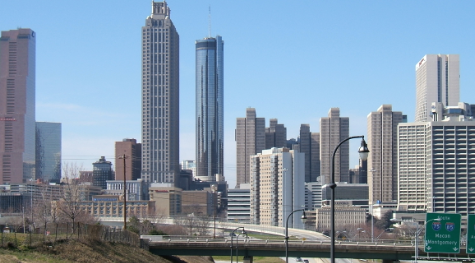
Atlanta has a reputation for southern hospitality, which adds to its appeal as a destination for high-tech companies and professionals. Immigrants to the area rave about the friendliness of the locals. This makes it a pleasant place for people of all ethnicities, making Atlanta a highly diverse high-tech hub. Entrepreneurs from all walks of life have been able to find success here and they have also reinvested into their local communities.
At the center of Atlanta’s growth as a high-tech hub is the Atlanta Tech Village, which is reportedly the 4th largest tech hub in the nation. The hub fosters startups and attracts venture capital. Among the things investors find appealing about the area are the low labor costs, friendly business environment, lower real estate prices and the proximity to several renowned universities. Georgia Tech, Emory University and Morehouse College all call the area their home.
Over 100,000 technology jobs were created in the region and the growth is not expected to slow any time soon. Software development engineers and Java developers in particular will find themselves in demand as will data analysts and solutions architects. The median salary in the area for tech professionals is $91,209 and the cost of living is 4.2% lower than the national average. All of this makes Atlanta an attractive destination.
Denver, Colorado
(Denver-Aurora-Lakewood, CO)
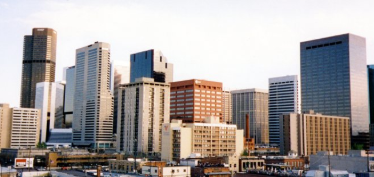
Colorado has been growing jobs in the last few years. Over 60,000 new listings for high tech professionals were created. Home to Raytheon, Dish Network and CenturyLink, Denver continues to attract high tech talent from around the nation. The Denver Tech Center is a hub within the city for both tech giants and new companies, but growth is not limited there. The northern suburbs boast companies like Lucent Technologies and Xilinx. There is a wide diversity of technology firms in the area, with everything from military contractors and commercial electronics to software providers.
While median salaries were $98,000, higher than average, the cost of living is also higher than average, though still affordable compared to Silicon Valley. One of the features that makes the Denver area attractive to younger professionals despite the elevated cost of living is the access to outdoor recreation. Nestled in the foothills of the Rocky Mountains, Denver provides access to skiing and hiking. There are also resorts and spas nearby built around natural hot springs in the area, and a robust sports culture. The Tattered Cover downtown is one of the nation’s premier bookstores, appealing to bibliophiles, and the local arts scene is growing. With marijuana legalized in the state in 2012, the area also attracts both those wishing to use cannabis recreationally and those who work for companies making related paraphernalia.
Columbus, Ohio
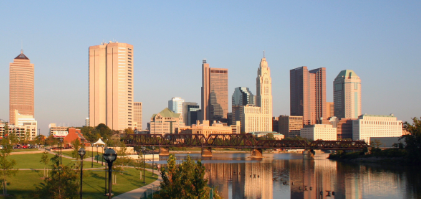
The Columbus metro area might seem a surprising addition to our list of top cities, but it’s had a resurgence in recent years. After its manufacturing base collapsed, entrepreneurs and manufacturers began to invest in other, higher-tech options, which have since led to a growth in technology firms in the area. There were 44,000 tech jobs listed.
While the area may not yet have renown as a high-tech hub, that may rapidly be changing as operating costs for companies relocating to the area can be up to 70% lower than they are in Silicon Valley, according to JobsOhio. No wonder Google has announced they are building a new data center in the region, which will add $600 million to the local economy. Meanwhile STEM professionals can benefit from a cost of living that is 5.1% lower than the national average while they earned a median salary of $90,000.
The area is also home to Ohio State and so of course college football is an attraction, as well as local festivals, music and art.
Orlando, Florida
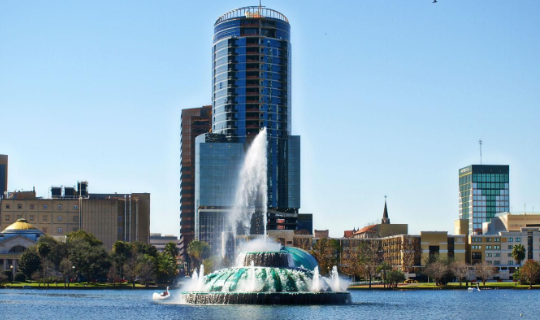
Florida as a whole has seen its unemployment rates drop to way below the national average, and Orlando is a superstar within the state. Overall job growth is quite robust. The city topped the state for new jobs for over 3 years in a row. Job growth continues and high-tech pays more than the average in the region while cost of living is relatively low. With Florida’s great business climate, look for tech companies to continue moving to the area.
While median pay was lower than in the other metro areas on this list, at only $87,400, this was more than balanced by the low median home prices of $210,000. Median rents, meanwhile, for a two-bedroom apartment, were about $1500. The technology jobs most in demand in this region are Software Engineer, Network Engineer and Software Developer.
Other attractions in the region include the many theme parks, water parks and of course easy accesses to the beaches. Being able to take your kids to Disney for a vacation becomes a lot easier if you live in Orlando! Plus you’ll be close to other Florida attractions such as the Kennedy Space Center, the historic Cuban communities and Salvador Dali museum in nearby Tampa, the thriving nightlife in Miami, and the historic attractions at St. Augustine. Plus you’ll enjoy year round sunshine. For those who love the beach, Florida has miles of white sand and waves for you to enjoy.
Chattanooga, Tennessee

Chattanooga as part of the GIGTANK accelerator program, where he unveiled Branch Technology for the first time. 3D printing is all the rage here.
Additional Resources
BLS Occupational Outlook Handbook (job outlook, salaries, etc. for IT occupations)